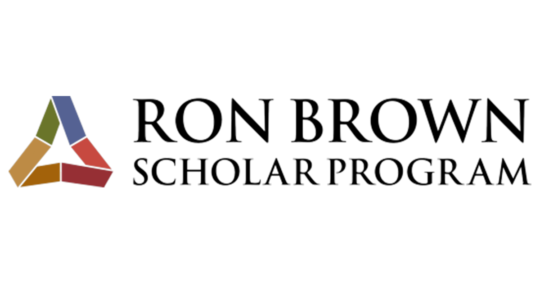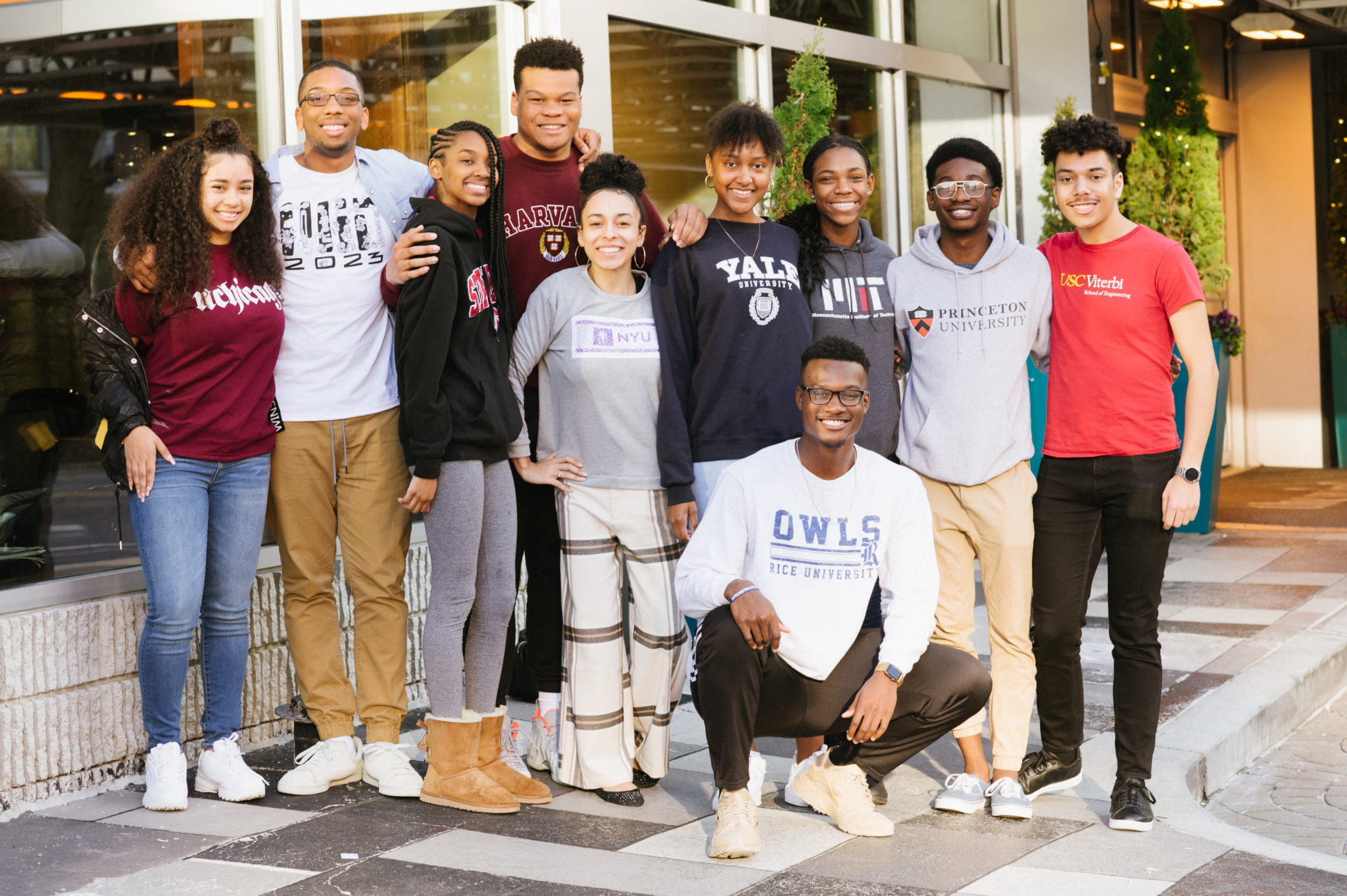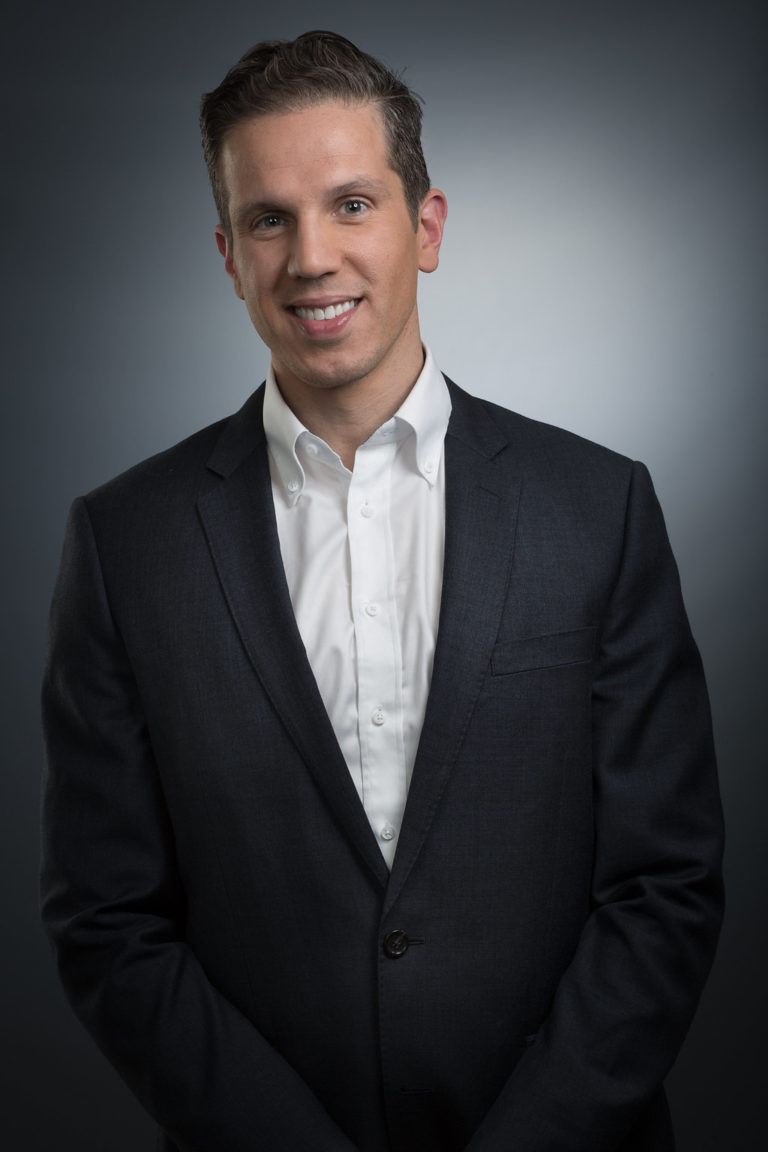Investing in Future Leaders
Apex Sponsors MIT-based Ron Brown Scholar
The headlines say it all:
“‘Coal Is on the Way Out’: Study Finds Fossil Fuel Now Pricier than Solar or Wind”
“Renewable Energy Is Now the Cheapest Option—Even Without Subsidies”
“Three-Quarters of New U.S. Generating Capacity in 2020 Will Be Renewable”
Stories like this reflect decades of technology advancements, the plummeting cost of renewable energy generation, and booming demand from utilities, corporate customers, and states and municipalities. Ultimately, that progress has been driven by a talented and passionate workforce. Looking forward, maintaining and building on this momentum requires an investment in the individuals propelling this change.
The Ron Brown Scholar Program has supported more than 1,200 students, with a 99% rate for undergraduate degree attainment.
Over the years, Apex Clean Energy has worked diligently to curate a workplace culture that embodies our core values and attracts accomplished and motivated individuals. The company has worked to not only drive visibility for opportunities at Apex, but also illuminate career paths throughout the broader industry.
By fostering diversity and inclusion, providing opportunities for career advancement and professional development, and offering an innovative environment where its employees can thrive, Apex is investing in a stronger, more resilient future.
Inspiring intelligent and driven scholars and young professionals to consider a career in renewable energy requires going against the twin lures of Wall Street and Silicon Valley. Talk to any leading recruiters, they’ll say the key to winning this competition for talent is establishing interest, respect, and engagement as early as possible.
In short, it takes an intentional approach. Enter the Ron Brown Scholar Program.

Supporting a Network to Create Space for Young Leaders to Grow
Ron Brown was the first African American to serve in a presidential cabinet, as secretary of commerce, and was widely respected on Capitol Hill and beyond until his untimely death in 1996. In his memory, the Ron Brown Scholar Program was created to provide academic scholarships, service opportunities, and leadership experiences for young African Americans of outstanding promise.

Courtesy Ron Brown Scholar Program
Located near our corporate headquarters in Charlottesville, the Ron Brown Scholar Program has supported more than 1,200 students, with a 99% rate for undergraduate degree attainment. But that’s just the beginning, as recruiting and networking across law, medicine, and business—along with the arts, sciences, and public service—yield momentous opportunities throughout each scholar’s developing career.
It was an obvious fit for Apex, the first and only renewable energy corporate partner in the Ron Brown Scholar Program.
For the next four years, Apex is sponsoring an outstanding graduate from Charlottesville’s Albemarle High School, Kinan Martin. Kinan is pursuing an engineering degree at the Massachusetts Institute of Technology (MIT), but that’s just one facet of his story.
Kinan has lived in numerous cities abroad and is fluent in French and Japanese, and has pursued learning Arabic, Russian, Chinese, and Tamil. He says that he has always been fascinated by the power of language to create bridges between different cultures, based on the global similarities in the human experience.
Though the clean energy industry must stay focused on maximizing the opportunities at hand, history will judge our work in terms of decades, not years. Success requires developing tomorrow’s leaders today.
Beyond his mastery of languages, Kinan is an avid volunteer and leader in his community. Add in the math and science proficiency required to study engineering at MIT, and there is virtually no limit to his professional future. Crucially, he also believes that engineering should be in sync with environmental and social issues, completely aligned with the Apex mission. In our view, Kinan, and students like him, are the long-term key to decarbonizing the grid and achieving the drawdown necessary to reverse the trajectory of our climate. (Read a Q&A with Kinan below.)
Our Focus Is the Long Game
Though the clean energy industry must stay focused on maximizing the opportunities at hand, history will judge our work in terms of decades, not years. Success requires developing tomorrow’s leaders today.
In this sense, the notion of educating, supporting, and inspiring young leaders is a priority shared by Apex and the Ron Brown Scholar Program. It also dovetails with our longer-term goals related to ESG and sustainability. Achieving organizational sustainability is impossible without incorporating diversity across our enterprise, and in turn instilling a culture of diversity that yields compounding benefits: distinctive opinions and perspectives, creativity and innovation, increased productivity and performance, and improved employee engagement and retention.
All of these contribute to a stronger, more resilient, and more vibrant future for Apex. We make progress daily, at the same time knowing that all of us in the renewable energy space have a significant journey ahead.
In Conversation: Kinan Martin
Apex is sponsoring Ron Brown Scholar Kinan Martin, a local graduate of Albemarle High School in Virginia. Kinan is pursuing an engineering degree at the Massachusetts Institute of Technology, an opportunity that has opened his eyes to a world of career possibilities. He took the time to answer a few questions about the Ron Brown Scholar Program, his future trajectory, and the common ground we all share.
How did you first learn about the Ron Brown Scholar Program (RBSP)?
I originally heard about the Ron Brown Scholar Program through my high school. The guidance staff and teachers at Albemarle High School do a good job of promoting and letting students know about opportunities they could participate in. Among the other opportunities there, the RBSP was probably the most influential and beneficial for me and my growth as a person. Through meeting, interacting, and learning from the members and coordinators, I learned of the importance of interpersonal connections and the ways one may go about fostering them.
How are the Ron Brown resources helpful to students like yourself?
One major thing that I learned through talking to other Ron Brown members is that the real benefits that RBSP provides come in the long term. So far, I have already had many opportunities to network with professionals from many different fields of business, as well as the ability to arrange contact with experts in my specific fields of interest. The staff members and alumni have given me great advice about my career, future, and life in general. Moreover, I am sure that as I progress through my studies and career, these resources will only exponentially increase in value.
What has been your favorite opportunity so far at MIT?
There are so many great things that I’ve participated in here that it’s very hard to decide! One opportunity that I really enjoyed was Global Teaching Labs (GTL), a program in which accepted MIT students are sent around the world to teach in different countries’ high schools. So, this January, I was able to experience life in Kazakhstan, a post-Soviet country in Central Asia. All around, it was a very interesting experience that allowed me to learn more about the world. Perhaps my favorite class here at MIT is called 9.59J: Laboratory in Psycholinguistics. The course consists of consideration and research of controversial linguistics claims and phenomena while also learning to use the R programming language to compile and analyze data for ourselves.
What has surprised you about your experiences abroad?
What surprised me most about my experience in Kazakhstan—a country on the other side of the globe—was not actually any particular difference between the country and mine, but rather all the similarities that we share. While exotic cuisine, traditions, and customs were what made Kazakhstan unique, it was really the amount of TV shows, celebrities, video games, and general interests that I had in common with the students of the high school that let me reflect on how truly interconnected we have become as a global society.


